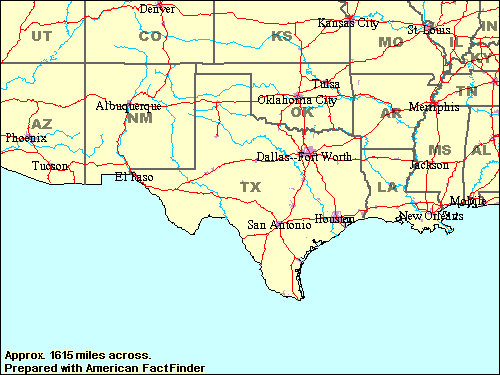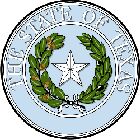|
||
 |
||
|
Texas, the "Lone Star State"
Abbreviation: TX |
||
|
The name Texas is a Spanish name, which comes from an Indian word meaning "friends" or "allies." The Republic of Texas achieved its independence from Mexico in 1836, the same year as the famous siege of the Alamo in which pioneers Jim Bowie and Davy Crockett were slain. It became the 28th state in 1845. Texas is the second largest state. Although it has a wild frontier history, today Texas is a major producer of oil and has important centers of industry and finance. Frontier cowboys with their 10-gallon hats have long been a symbol of the state. Cowboys still ride across the plains driving great herds of cattle; and cowboy hats and boots still make up the everyday dress of many rural Texans. However, the Texans of today are just as likely to be workers in an oilfield or scientists in a laboratory as they are to be cowboys. Some of the most popular resort centers in Texas are on the Gulf Coast. Sandy beaches stretch along most of the coast, making it ideal for swimming, boating and deep sea fishing. GOVERNMENT Population (July 2001): 21.370,983; National Rank: 2; Percent change since April 2000: 2.3% Land Area: 261,914 sq mi. (678,358 sq km); National Rank: 2 10 largest cities (2000): Houston, 1,953,631; Dallas, 1,188,580; San Antonio, 1,144,646; Austin, 656,562; El Paso, 563,662; Fort Worth, 534,694; Arlington, 332,969; Corpus Christi, 277,454; Plano, 222,030; Garland, 215,768 ECONOMY |
||
|
DISCLAIMER Any reference obtained from this server to a specific commercial product, process, or service does not constitute or imply an endorsement by the United States Government of the product, process, or service, or its producer or provider. The views and opinions expressed in any referenced document do not necessarily state or reflect those of the United States Government. |
|
U.S. Diplomatic Mission to Germany
/Public Affairs/ Information Resource Centers Updated: February 2004 |

